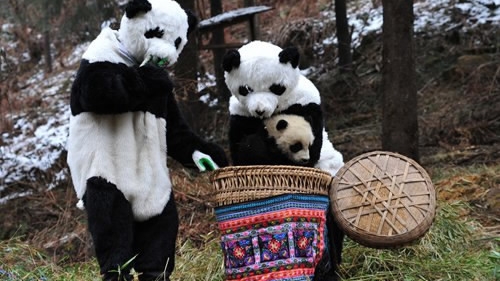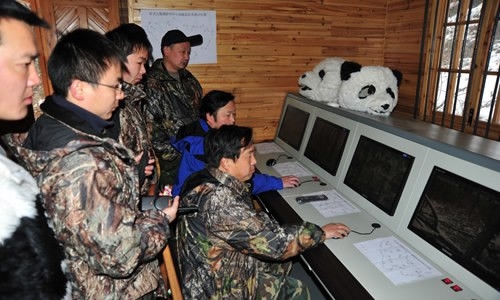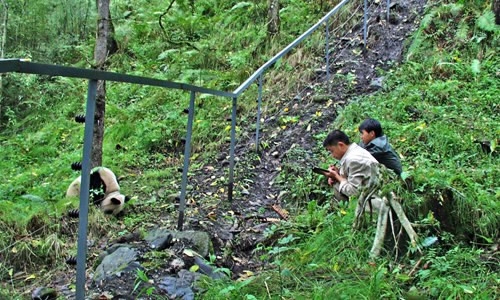
Culture
17:11, 19-Dec-2017
Panda-feeding is not all about playing with cute bears, it has life risks
CGTN

Panda feeder Wei Hua is still recovering one year after a ferocious panda attack.
He was on a mission to train artificially bred pandas to adapt to the wilderness when, in late 2016, he was mauled by the very target of his benevolence.
Long, visible scars now cover his head, legs and arms. His left little finger has also lost its ability to move, and he has to practice walking every day.

Panda base workers monitor newly released pandas on screens. /VCG Photo
Panda base workers monitor newly released pandas on screens. /VCG Photo
Still, he longs to return to work and back to his beloved pandas.
In 2007, Wei finished his postgraduate degree in wildlife protection from a university in Guangxi Zhuang Autonomous Region. Very soon he became head of the panda department at a Guilin city zoo.
However, a visit to the panda research base in Ya'an, Sichuan Province, changed his life. He quit his zoo job in Guilin in 2013 and immediately moved to Ya'an, where he worked a menial job clearing panda dung.

Workers observe pandas in the forest. /VCG Photo
Workers observe pandas in the forest. /VCG Photo
In order to rehabilitate China's wild panda population, the panda research center in Ya'an holds a program to train and release captive pandas back into the wilderness.
After being trained, female pandas are left in an enclosed section of forest to breed and raise their cubs, which will eventually be released back into the wilderness when they grow up.
Wei applied many times to participate in the rehabilitation program and was finally included in 2015. The program's staff must wear special "panda suits" sprayed with panda urine, which reduces the scent of humans in the panda's world.

Workers carry a giant panda to be released back into the forest. /VCG Photo
Workers carry a giant panda to be released back into the forest. /VCG Photo
One day in December of 2016, Wei was checking up on a panda cub, Baxi, when he unexpectedly encountered the cub's mother, Ximei. Due to the forest's complicated terrain, Ximei's signal did not show up properly on Wei's tracker.The mother, mistaking Wei as a danger to her cub, attacked and seriously injured the human.
Many say this accident serves as a reminder that being a panda feeder is not only about getting close to these cute, furry creatures, but also involves a high degree of danger from what essentially are ferocious bears.
Doctors say Wei may never fully recover from his injuries, yet he said he still expects to eventually return to his post.
Source(s): Global Times

SITEMAP
Copyright © 2018 CGTN. Beijing ICP prepared NO.16065310-3
Copyright © 2018 CGTN. Beijing ICP prepared NO.16065310-3